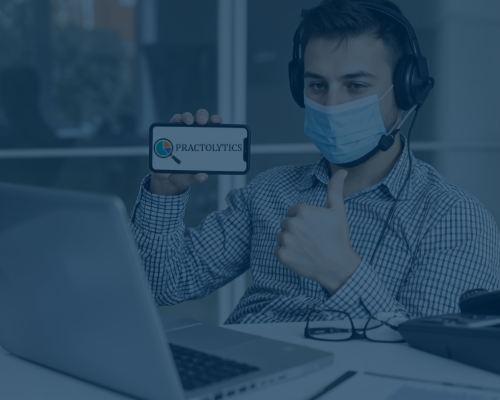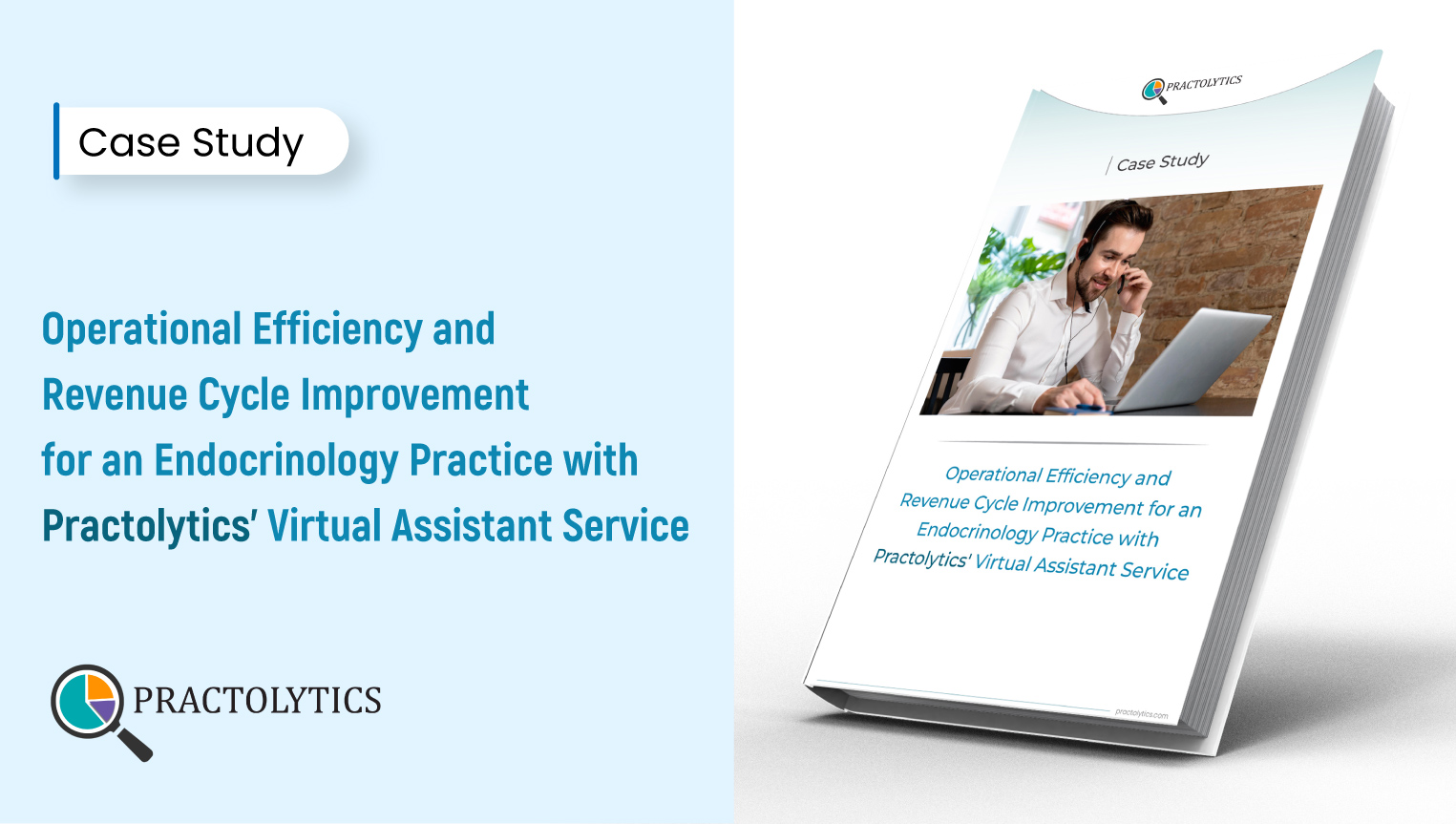Virtual Telephone Triage Assistant Services
When a patient calls your practice, what happens next can shape their entire care journey. Imagine this: A concerned patient calls in after hours. Instead of hearing a voicemail or waiting endlessly, they connect instantly with a trained professional who asks the right clinical questions, assesses urgency, and guides them to the right level of care. That’s the power of Virtual Telephone Triage Assistant Services—and it’s reshaping how care begins.
At Practolytics, we believe this “first contact” moment deserves more than a rushed phone call or overburdened staff. It deserves expertise, empathy, and efficiency.
Let’s talk about how virtual triage is becoming the beating heart of patient access and clinical safety.
Not Just a Call – It's Clinical Navigation!
Today’s patients want access, clarity, and confidence. But here’s the problem: Most practices are overwhelmed. Physicians are stretched thin, front desks are overloaded, and missed calls often translate into missed care.
Enter Telephone Triage virtual Assistant —a clinically guided, tech-enabled, nurse or assistant-led service that’s transforming phone-based care navigation.
But this isn’t just about answering phones. It’s about providing structured, evidence-based responses to patient concerns. It’s about risk stratification. It’s about escalation when needed. And most importantly, it’s about reducing unnecessary ER visits while improving patient trust.
What Happens During a Virtual Telephone Triage?

A Virtual Telephone Triage Assistant follows a structured clinical workflow designed to enhance patient safety and efficiency. It begins with the initial contact, where a patient call is routed through a secure system to a trained triage assistant. During the assessment phase, the assistant uses evidence-based protocols to ask symptom-based questions and gather necessary clinical information. Based on this, a triage decision is made to determine whether the patient requires emergency room care, a clinic visit, telehealth, or can be managed with home care guidance. If necessary, the case is escalated for physician follow-up or redirected to emergency services. Every interaction is documented securely in the electronic medical record (EMR) to ensure continuity of care. This is not a typical front desk phone call—it’s a clinically guided process, grounded in modern protocols and aimed at reducing risk.
Here’s Why It Matters Now (More Than Ever)?
Virtual triage isn’t a luxury anymore—it’s a necessity.
These numbers paint a clear picture: The healthcare front door is shifting. And triage services, when done right, offer a massive opportunity to guide patients to the right care at the right time.
Flow of Telephone Triage Assistant : Visualizing Efficiency!

A typical day with remote telephone triage services begins when a patient calls in, triggering the involvement of a Virtual Triage Assistant. This trained assistant immediately engages the patient and initiates a clinical assessment protocol to evaluate symptoms. The process follows a structured decision tree: if the situation is deemed an emergency, the patient is referred to the ER; if an appointment is needed, the assistant either schedules it or escalates the case appropriately; and if the concern is non-urgent, the patient receives telehealth guidance or home care advice. Finally, all relevant information is updated in the EMR, and the provider is alerted if necessary. This streamlined process ensures each patient receives timely and appropriate care, while also significantly reducing the workload of in-house staff.
Complex Isn’t Chaotic—Unless You Don’t Have Help!
Let’s face it. Practices juggle a lot:
Throw in after-hours calls or urgent inquiries, and suddenly your front desk becomes a pressure cooker.
That’s why virtual telephone triage isn’t just an add-on—it’s a clinical safety valve. It brings structure to uncertainty, and calm to chaos.
When integrated with EMRs and backed by trained medical virtual assistants like those at Practolytics, it becomes a natural extension of your clinical care.
Real-World Wins: What Our Clients Are Seeing?

Here’s what’s happening with practices that use our triage solutions:
Practices report fewer angry voicemails, more time for actual patient care, and a noticeable improvement in staff morale.
Because when patients feel heard and cared for—even over the phone—everything gets better.
And Then There’s The Outsourcing Angle…
Let’s keep it real—building this in-house is hard. Training staff. Managing shifts. Ensuring compliance. It’s expensive, time-consuming, and honestly, unsustainable for many small to mid-sized practices.
That’s where outsourcing your virtual telephone triage to Practolytics makes a difference. We bring the trained team, the technology, the protocols, and the peace of mind.
With HIPAA-compliant, fully integrated solutions, our Virtual Medical Assistants handle triage like an extension of your clinic—without the extra overhead.
Simple. Scalable. Smart.
Final Thoughts: It’s More Than a Call—It’s Clinical Care!

Virtual telephone triage services are no longer just a “nice-to-have.” They’re a vital strategy in creating better access, better outcomes, and a better experience for your patients—and your staff.
Practolytics is proud to lead the way with customized triage solutions backed by our team of highly trained Medical Virtual Assistants.
If you’re ready to take the pressure off your front desk and ensure every patient call starts with clarity, care, and clinical precision, let’s talk.
You care for your patients. Let us care for your phones.
Resources
Enhancing Efficiency & Revenue with Virtual Assistant Service
Learn how Practolytics Virtual Assistant Service transformed an endocrinology practice by reducing admin burdens, minimizing errors, and enhancing revenue & care.
Where It All Began: The Burden Behind the White Coats
Texas family medicine practice improved efficiency and revenue by overcoming admin burden, billing issues, and delayed reimbursements with smart solutions.
The Financial and Administrative Impact of Prior Authorization
Prior Authorization is a process through which healthcare providers attain approval for specific treatments, procedures, or medications before their coverage.
FAQ's on Virtual Medical Assistance
What does a triage specialist do?
The initial examination of patients in order to figure out the significance in their health care requirements was the job of the triage specialist, a licensed healthcare provider who often includes a medical assistant and a registered nurse. These play a vital role for ensuring people being quickly placed in the right level of care.
What is the telephone triage system?
For the purpose of to arrange treatment and assess individuals’ health requirements on phone calls, the medical field utilizes telephone triage systems. To be able to determine the need for immediate and correct amount of therapies required this procedure is usually executed through experienced nurses and other medical professionals including includes asking specific inquiries regarding the symptoms of a person as well as medical history.
What are the duties of phone triage?
Through immediately identifying patients’ needs as well as assigning them towards the proper form of treatment, a telephone triage nurse executes an important role within the health care sector. Receiving mobile devices, giving close attention to customers’ concerns, including recording complete details regarding their signs including background in medicine have every one among their duty of care.
Where do i find virtual assistants to fulfill the triage role?
There are also many websites including experts assistant companies that provide virtual employees with the capabilities essential for performing assessment operations, particularly in the field of healthcare. These medical professionals have been trained to assess requirements for clients, rank instances, provide advice, as well as coordinate communication; also commonly connect using Electronic Health Record (EHR) systems.
Why is triage is important to a medical practice?
From a variety of crucial causes, prioritisation is vital for a healthcare system. Most importantly, this ensures the security of patients by providing attention to people having the most severe or serious diseases, ensure that they will receive immediate treatment. By performing this, delay that the can have adverse effects will be prevented.









